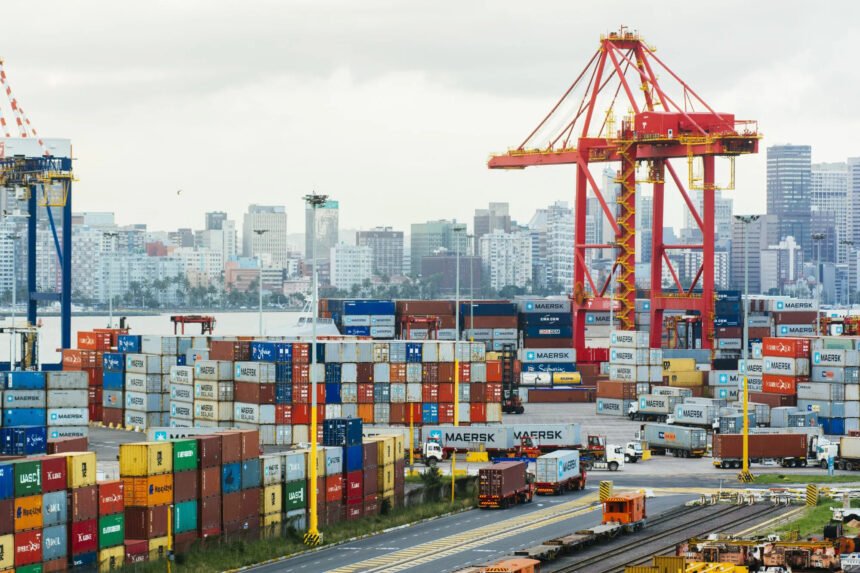Lusaka, 24 July 2025 – The time for deliberation is over. Across the continent, the call is growing louder: Africa must awaken to its potential, harness its collective power, and shape its future through unity and decisive action.
This message was powerfully reinforced at the University of Zambia on 23 July, during the launch of the United Nations Economic Commission for Africa’s (ECA) 2025 Economic Report on Africa (ERA). Held under the theme “Advancing the Implementation of the African Continental Free Trade Area (AfCFTA): Proposing Transformative Strategic Actions,” the event focused on the opportunities and challenges that lie ahead for Southern Africa in the era of continental trade integration.
Organised by ECA’s Sub-Regional Office for Southern Africa in partnership with the United Nations Development Programme (UNDP) and the University of Zambia’s Department of Economics, the event was more than a lecture; it was a rallying call for multi-sectoral collaboration. Students, academics, policymakers, and private sector leaders came together to assess how the AfCFTA can be effectively implemented to transform economies across the region.
Speaking at the launch, Ms Zodwa Mabuza, Chief of Sub-Regional Initiatives at the ECA, stressed the urgency of moving beyond raw commodity exports and instead using the AfCFTA as a lever to build strong regional value chains. “This trade agreement offers a strategic route to securing food systems, driving sustainable industrialisation, and enabling inclusive economic growth through value-added trade,” she said. Ms Mabuza also highlighted the vital role of the free movement of people as a core enabler of the trade pact’s success.
The event featured key voices from the Ministry of Commerce, Trade and Industry, ECA, UNDP, Consumer Unity and Trust Society (CUTS), the Centre for Trade Policy and Development (CTPD), and student bodies such as the Young Economists Network and the University of Zambia Business and Economics Association (UNZABECA). Discussions revolved around aligning national trade policies with development objectives and identifying practical steps to build inclusive, trade-driven economies.
The African Continental Free Trade Area is the largest in the world by number of member states. It is a bold initiative that, if implemented with discipline and ambition, could change Africa’s position in the global economy. But it also highlights a deeper truth: Africa’s biggest challenge is not talent or resources, but unity.
Unlike China or India, which both boast populations of over 1.4 billion within unified state systems, Africa is fragmented into 55 independent countries. This political reality has long stood in the way of harnessing economies of scale. If Africa is to fully benefit from a common market, it must tackle issues of cross-border infrastructure, shared monetary policy, and coordinated financial systems. This is not just a technical question; it is a deeply political one.
Sovereignty is precious, and no country yields it lightly. But the harsh reality is that Africa cannot afford to operate in isolation any longer. The cost of disunity is high: lack of infrastructure, limited access to markets, and vulnerable supply chains that stifle industrialisation and innovation. Fourteen African countries are landlocked, reliant on their neighbours for access to the sea. For them, regional cooperation is not optional; it’s essential.
A unified Africa, connected by infrastructure and bound by shared development goals, has the potential to achieve unprecedented growth. According to research conducted alongside the African Development Bank, Africa could replicate the kind of rapid economic transformation that China experienced between 1980 and 2020. In this scenario, the continent could attain high-income status by 2063, a fitting milestone marking 100 years since the founding of the Organisation of African Unity.
This transformation is not just possible; it’s necessary. Africa is on the cusp of a demographic shift. While most regions of the world are seeing declining birth rates, Africa remains the only region with persistently high fertility. By mid-century, Africa’s population is projected to reach 2.5 billion, and by 2100, as much as 3.8 billion, representing nearly 38% of the global population.
If this population growth is matched by economic development through investments in infrastructure, energy, education, and industrial policy, Africa could become a central player in the global economy rather than a peripheral one. The continent has the human capital, the resource wealth, and the market potential. What it now needs is bold political will and coordinated action.
Africa’s story is not pre-written. The future is still being shaped. With the right partnerships, courageous leadership, and a firm commitment to unity, Africa can redefine its place in the world. The time for speeches has passed. The era of transformation must begin.










